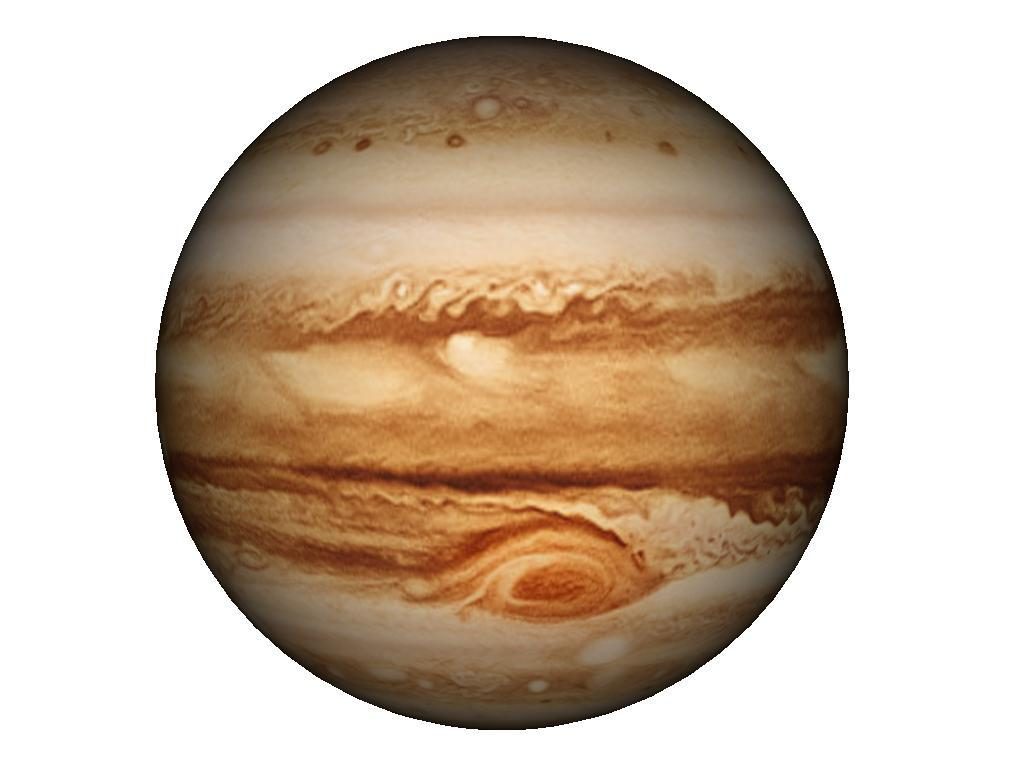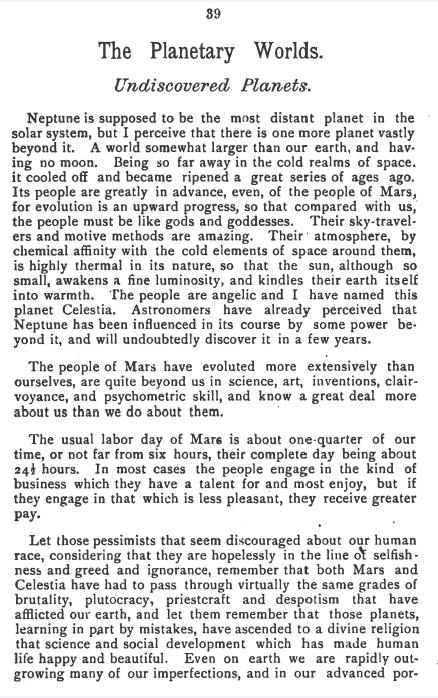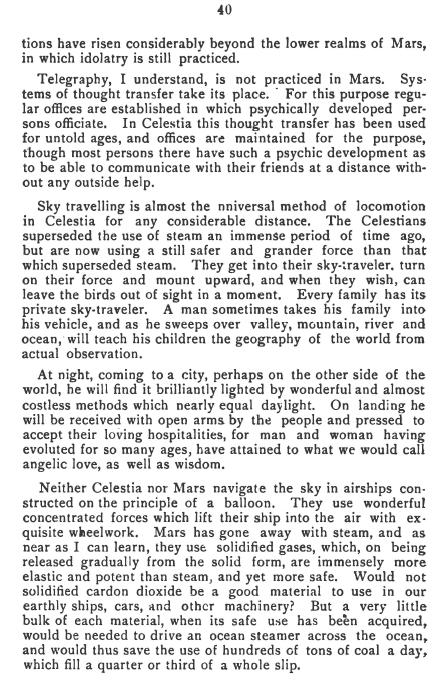Living on Other Planets July 13, 2016
Author: Beach Combing | in : Modern , trackback
Beach recently, while looking for ghosts, ran across this in one Daniel Defoe’s work. This is what it would be like to live on other planets according to an intelligent eighteenth-century thinker.
In Saturn they are to live without Eyes, or be a Kind so illuminated from their own internal Heat and Light, that they can see sufficiently by their own Beams.
In Jupiter there must be another Kind, that can live in Twilight, and by the Reflection of its own Moons, and subsist in continued Frost.
In Mercury the Species must be all Salamanders, and live in the continued Fire of the Sun’s Beams, more intense than what would be sufficient to burn all our Houses, and melt our Copper, Lead, and Iron in the very Mines; so the Inhabitants must be of a Kind better able to bear the Fire than those Metals, and would still live tho’ they were continually calcining if not vitrifying into Glass.
In Venus the Heat would boil the Water, and consequently the Blood in the Body, and a Set of human Bodies must be form’d that could live always in a hot Bath, and neither sweat out their Souls, or melt their Bodies.
In Mars, so very dry in its Nature, no Vegetables or Sensatives could subsist that we have any Notion of, for want of Moisture; and the Men that liv’d there must be dried up sufficiently for pulverizing on any suitable Occasion, I mean human Beings, and of our Species.
Some of these match what school children are told today: Mercury is very vivid. Others are more difficult to parallel with modern beliefs. If you lived on Jupiter, Beach suspects that twilight would be the very least of your problems… Other early accounts of planets: drbeachcombing At yahoo DOT com
An Essay on the History and Reality of Apparitions (1727), 27-8
Loes, 31 Jul 2016, Of course you know Swedenborg little book ‘Life on the Planets’ [no!!!] . I checked my own library. Most of the descriptions (Christiaan Huygens, Franz von Paula Gruithuisen, Herschel, Flammarion etc are merely speculations on astronomical findings.
Maybe the attached article is of some use: in the IAPSOP archive, Rosicrucian Brotherhood V2 N1 Jan 1908 p39. Not very old, but certainly weird!
I bet the IAPSOP archive has more to offer in this respect, for the patient ‘lettercomber’.




